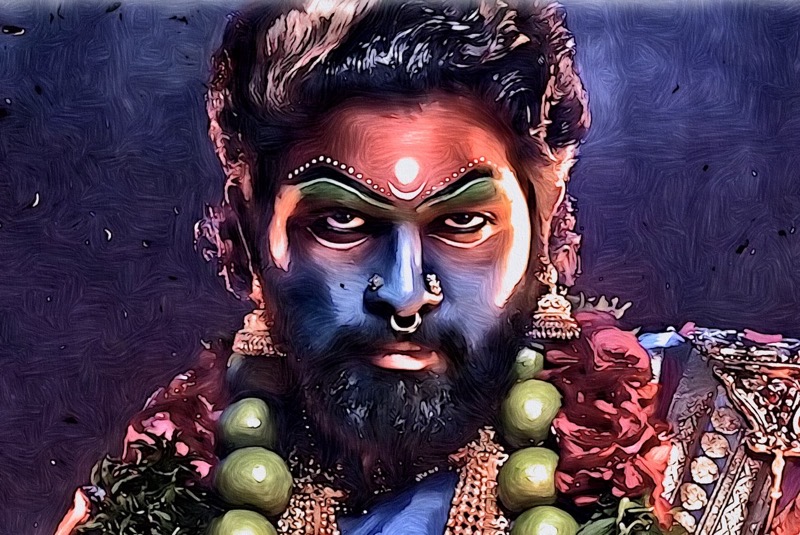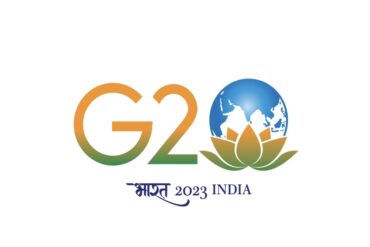“Icon Star.” “Mega Star”. “Power Star.” “Mega-Power Star.” What are these cringe-worthy words? What do they even mean? They are self-conferred, false titles — cheap sobriquets that some of India’s film stars bestow upon themselves.
Desperate to project themselves in a larger-than-life image and to manufacture themselves as a “marketable” and “saleable” brand to the masses, they give themselves these grandiose yet indecorous, exaggerated titles. Worse, when films are released, they are projected on film screens with tacky graphics as if they are titles bestowed by the highest authority.
Unfortunately, many of these are passed down as though they are family lineage. For instance, Chiranjeevi, an actor in the Telugu film industry, calls himself “Mega Star”; this absurd title is flashed on screens (especially when he makes a screen appearance) to titillate the masses. His brother calls himself a “Power Star.” Chiranjeevi’s son calls himself “Mega-Power Star” — a chutneyfied title which takes “Mega” from his father and “Power” from his uncle and adds a star at the end; his cousin, also an actor, calls himself “Icon Star.”
Such self-promotional tactics and self-aggrandising gimmicks by actors are not specific to Telugu Cinema; Tamil, Hindi, and Bengali film stars are guilty of such antics. The Tamil actor Rajinikanth, for instance, promotes himself as a “Superstar.” Shah Rukh Khan promotes himself as “King Khan” and “Badshah of Bollywood.” The list goes on. One calls himself “Stylish Star,” another calls himself “Cute Star.” And their fake titles are rubbed onto people; unfortunately, they have no choice; there is no escape from this promotional malarky presented as “entertainment.”
These fake titles have worked wonders though; film stars have attained phenomenal success at the box office and have managed to present themselves as “demi-gods.” For instance, the man who calls himself “Power Star” is now the deputy Chief Minister of Andhra Pradesh. Such blatant, vulgar, self-promotional titles have worked spectacularly well for strategic and tactical aggrandisement of a few individual film stars. They hang on a film star’s name as an appendage, creating a false “titular glory” for these actors.
The larger-than-life image also plays a significant role in promoting Nepotism, a sad reality that is deeply embedded in the Indian entertainment industry. Chiranjeevi’s family is known for exercising undue control over the Telugu film industry, often going as far as wantonly jeopardising the careers of actors who are not in his good books. Similarly, Bollywood has had its fair share of accusations over nepotism and control.
Placing someone on a pedestal—as a “King” or “Badshah” or “Mega Star” or “Super Star”—will only falsely aggrandise and glorify actors as “demi-gods.”It is false propaganda that shows the blatant yet unacknowledged unethical, illegal methods of promoting films in India.
The Advertisements Standards Council of India, which seeks to ensure that advertisements (including advertisements of films) conform to its Code, requires advertisements to be legal, decent, honest and truthful. Chapter One, which delves into Truthfulness and Honesty, states:
“All advertisements and promotions must ensure truthfulness and honesty of representations and claims made by advertisements, and to safeguard against misleading advertisements…All descriptions, claims and comparisons, which relate to matters of objectively ascertainable fact, should be capable of substantiation…Advertisements shall not be so framed as to abuse the trust of consumers, or exploit their lack of experience or knowledge. No advertisement shall be permitted to contain any claim so exaggerated.”
Clearly, the use of fake titles by film stars as a promotional tactic does not present an honest and truthful representation — and these actors know that it isn’t truthful or honest. Moreover, none of these titles are objectively ascertainable facts. They are exaggerated (and, in most instances, false) claims that deliberately mislead the audience into believing in such a false titular glory. What is “Mega Star”? What on earth is “Mega-Power Star”?
Is Shahrukh Khan the “King” or “Badshah of Bollywood”? It is hard to understand the basis on which an actor calls himself “King” or “Prince” or “Mega Star”. Such blatant self-promotion reflects the unethical practices followed by film stars to promote themselves. They are nothing but self-indulgent titles, akin to false propaganda. Their self-promotional fake titles are morally reprehensible.
More importantly, promotion through such fake titles is illegal. Adding such titles goes against the spirit of Article 18 (1) of the Constitution of India, which clearly and unambiguously abolishes all titles. India’s judiciary must ensure that all film promotion follows the rules established by the Constitution of India.
Film stars, through promotional tactics, present themselves with ostentatious tiles and as “larger-than-life” personalities and “demi-gods.” This is a means of achieving psychological dominance.
India has a strange problem with celebrity worship, unlike anywhere else in the world. If India’s judiciary and lawmakers do not take a reasoned, logical approach to curtailing such false, exaggerated claims, more people will fall prey to dangerous self-promotional propaganda.
-30-
Copyright©Madras Courier, All Rights Reserved. You may share using our article tools. Please don't cut articles from madrascourier.com and redistribute by email, post to the web, mobile phone or social media.Please send in your feed back and comments to [email protected]











